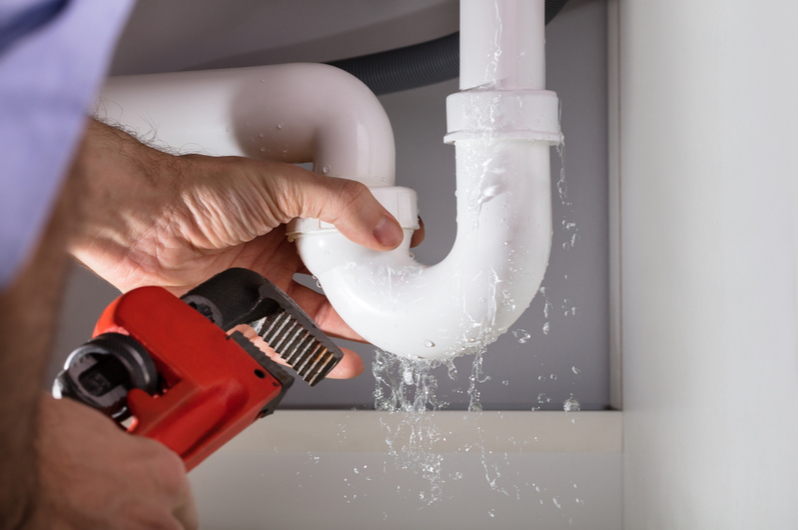Modern plumbing has made access to cold and hot water instant, but it’s not without its problems every now and then. A system consists of valves and pressure to supply water to your home continuously, but if something happens to disrupt the flow, you can experience a slew of soggy problems. Some basic knowledge of plumbing and quick actions can reduce or prevent damage to your home. Keep these tips in mind to keep your home dry.

1. Look for problems
Be vigilant and tackle problems as they happen instead of after a disaster happens. Little leaks can turn into big leaks and eventually flood in your basement, kitchen, or bathroom. Keep your eyes out for signs of problems such as damp or musty cabinets, dripping refrigerators, and leaky toilets that can create larger concerns that need to be addressed by professional plumbers.
2. Fix problems soon
A leaky faucet may seem like a minor inconvenience, but it has potential to create more serious issues. The excess moisture creates an environment ideal for mold growth and mildew formation. It also causes your fixtures to wear out sooner, meaning you’ll need to buy new faucets before you originally planned on it, if at all. If you pay for water, you’re also paying extra money for water that you don’t even use. Find out why the leak is occurring and fix it soon, not just when you get around to it weeks or months down the road.
3. Know your water system
Know where the main shut-off valve for your water is located if an emergency does occur that warrants shutting off the supply for repair on your drains or pipes. Keep any tools you need to shut it off close by and ensure that there is adequate lighting to do it quickly. Time isn’t exactly on your side when you’re dealing with a broken pipe and your house is starting to flood.
4. Appliance shut off
Know how to turn off water for each appliance that uses it to tackle smaller isolated problems. This includes the toilet, sinks, washing machines, and the ice maker. You’ll make things a lot easier to deal with by minimizing how much water spills everywhere.
5. Fix small problems
Knowledge of how to fix minor issues is essential to being a homeowner. Keep a plunger, pipe wrench, and a sewer snake in your arsenal of supplies to fix minor clogs and leaks. You’ll save yourself time by not having to contact a professional for problems that can be resolved with some basic maintenance skills.
6. Prevent freezing
Frozen pipes can be devastating for homeowners. Keep them insulated in exposed spaces such as in crawl spaces or in the garage. Water expands when it freezes and can crack pipes, which leads to leaks and floods. Place caps on outdoor fixtures such as spigots. Keep sprinkler systems clear of standing water by using compressed air. Turn your taps on at a trickle to keep the water flowing and prevent freezing. If pipes do freeze, try to warm them up with a hairdryer beginning at the end of the pipe closest to the faucet.
Plumbing problems don’t have to be disastrous if you know how to handle basic maintenance. Leave the more difficult tasks to the plumbers, but be a smart homeowner a educate yourself on how to complete basic repairs to save time and money.